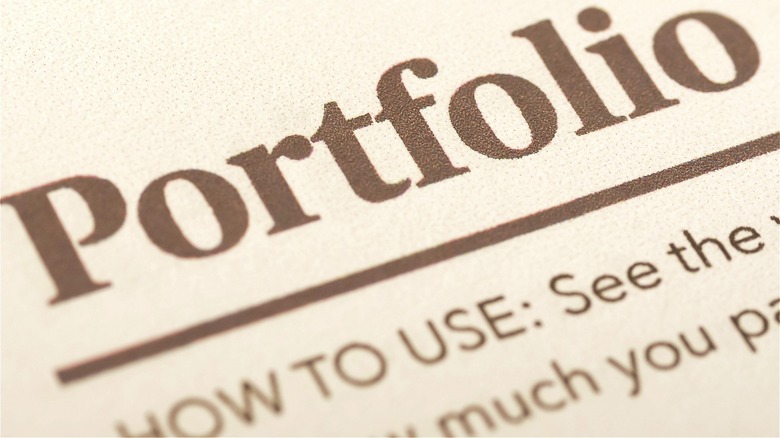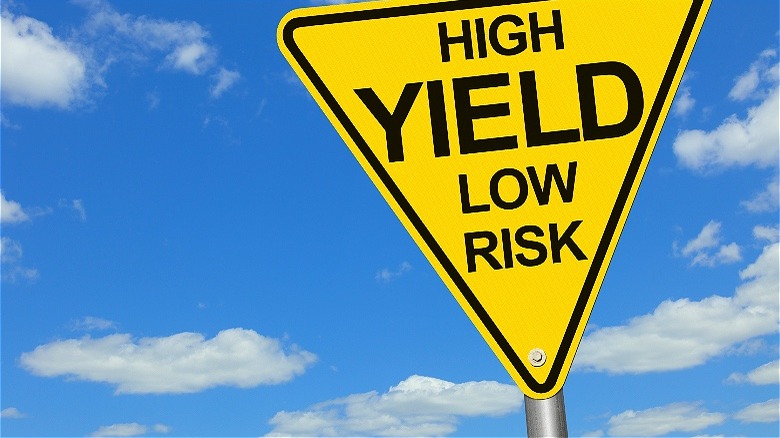How Much Cash Should You Leave In Your Investment Portfolio?
In 2023, the benchmark S&P 500 stock market index notched an impressive gain of approximately 24%. So far, 2024 appears to be on track for an encore performance. As such, it's tempting to shovel all of your extra cash into the equities market, but should you? That depends on several factors, not the least of which is your age, risk tolerance, and upcoming spending requirements, all of which we will soon delve into more deeply.
However, generally speaking, you'll want to have at least some cash on hand regardless of any variables. This could take the form of building an emergency fund, which typically should cover three to six months' worth of living expenses. Emergency funds can cover unplanned events like job loss, unexpected home or auto repairs, medical issues, and more. Note that cash for an emergency fund could be parked in a corner of your regular brokerage account or stored separately, like in a high-yield savings account.
Besides emergencies, another justifiable reason for holding cash, though, is if you're planning to invest it eventually, but may be waiting for a certain entry point or opportunity, like a stock market correction (here's how to prepare for one). That said, most financial advisers recommend against playing your hunches or trying to time the market, at least to a significant degree
Cash equivalents are attractive, for now
To be clear, when we talk about cash, that can also mean cash equivalents like money-market accounts, certificates of deposit, or treasury bills. Though typically, the maturity dates will be short-term; 90 days or less in the future.
The good news for cash holders is that, beginning in 2022, the Federal Reserve started raising interest rates in an effort to halt the consumer price inflation that was caused by COVID-era supply chain issues and monetary stimulus. Finally, investors were able to earn a healthy 5% or more on cash or cash equivalents after more than a decade of anemic yields. However, even with recent higher yields, cash equivalents still lag the explosive gains available in the stock market. As well, there's the risk that the yields on cash equivalents will fall going forward.
Of course, that's sometimes the consequences of having a diversified portfolio comprising several different investment types that don't perform equally well — or poorly. There will be a time when the stock market goes into a correction, or perhaps even a crash (speaking of which, what's the difference between a correction and a crash?), and cash or cash equivalents will rule the day. Anticipation of a market correction, in fact, is a strong reason to keep some cash in your investment portfolio. By not being fully invested in either equities, cryptocurrency, or other assets, you'll be able to pounce and scoop up bargains when the price of those assets fall.
Older investors might choose to hold on to more cash
The allure of cash is that, obviously, it's highly liquid and available when you need it. Also, cash is safe from losing principal value. Even cash equivalents like treasury bills, which may be subject to small price fluctuation over the course of their short lives, will return 100% of their par value (face value) without fail if held until maturity. As well, cash held in CDs and high-yield savings accounts are FDIC insured against loss up to $250,000. In fact some brokerages are able to offer much higher FDIC insurance limits ($1 million or more) by spreading your cash among multiple banks, each separately FDIC insured.
The fact that cash isn't subject to loss of principal makes it suitable in larger quantities for investors nearing, or in, retirement. The thought being that younger investors who are further from retirement age have more time to recover from a significant stock market downturn than older investors would. Still, even more conservative mature investors don't want too much cash. Instead, consider other safe fixed-income investments like longer-term CDs, treasury notes, and various types of bonds or bond funds.
At least 5% cash is recommended for everyone
In summary, it's a prudent idea for investors of all ages and experience to keep some cash on hand. This money can serve double duty as a buffer to pay for life's unexpected expenses as well as some "dry powder," as the metaphor goes, for attractive buying opportunities in the stock market that may present themselves during downturns. However, you don't want to get carried away because over the long term, cash and cash equivalents have historically underperformed other sectors like the stock market or longer-duration bonds.
If you're an older investor, however, nearing retirement or perhaps already in retirement, you'll understandably want to hold more fixed-income securities that are secure from a decline in principal if held to maturity. With this said, resist the urge to be overweight cash-only. Currently, short-term cash equivalents are yielding more than their long-term counterparts, but that's an anomaly that doesn't hold up historically.
Lest we be accused of not providing some hard numbers here, some investors choose to allocate as much as 20% to 30% of their portfolios to cash or cash equivalents. That's probably the upper range of what most financial advisers will recommend. A more popular consensus exists in the 10% to 20% cash range. Finally, it's not recommended to keep less than 5% of your investment portfolio in cash, unless you have an appropriate amount of cash reserves stashed elsewhere, such as in a high-yield savings account. (On that note, these are the worst places to keep your savings.)



